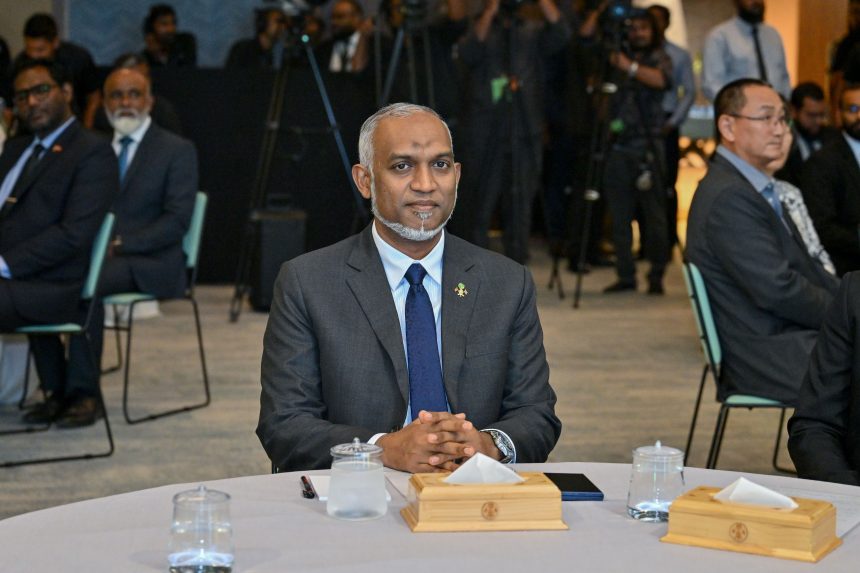In a powerful address that signaled a major shift in the Maldivian governance model, President Dr. Mohamed Muizzu unveiled his visionary target to enable one-third of the nation’s public sector workforce to operate remotely by 2028. The announcement was made during the inauguration ceremony of the “Maldives 2.0 Digital Transformation Summit” held last night in Malé.
Framing digitalisation as a national transformation journey, President Muizzu emphasized that the future of governance hinges on collective effort and strategic adaptation. “This is not a dream of one individual—it is a shared journey. By 2028, I want to see at least 33% of the government’s 49,000 employees working from home, supported by a strong legal and administrative framework,” he declared.
While acknowledging that key public service areas like health and education will continue to require on-site staffing, the President said flexible models can be implemented for administrative and technical roles. He proposed standardized frameworks that could require employees to report to office premises for a fixed number of hours, such as 30 per week, while allowing the rest of their work to be done remotely.
The President stressed the vast benefits of this approach, from cutting operational costs to boosting efficiency and promoting transparency across state institutions. He also linked the digital transition to national environmental goals. “Reducing daily commutes will ease traffic congestion in Malé and lower harmful emissions—contributing to a cleaner, more sustainable urban environment,” he said.
Muizzu urged national unity in realizing this ambitious goal, stating, “Success lies in our shared determination. Only if we speak with one voice and uphold a shared standard can this transformation truly succeed.”
The Maldives 2.0 initiative has already drawn praise from international partners, including Estonia—a global model for e-governance—whose support was acknowledged by the President in his earlier speech during the summit.
As the Maldives embraces the era of smart governance, President Muizzu’s remote work vision stands as a cornerstone in the broader national push for innovation, sustainability, and digital excellence.



